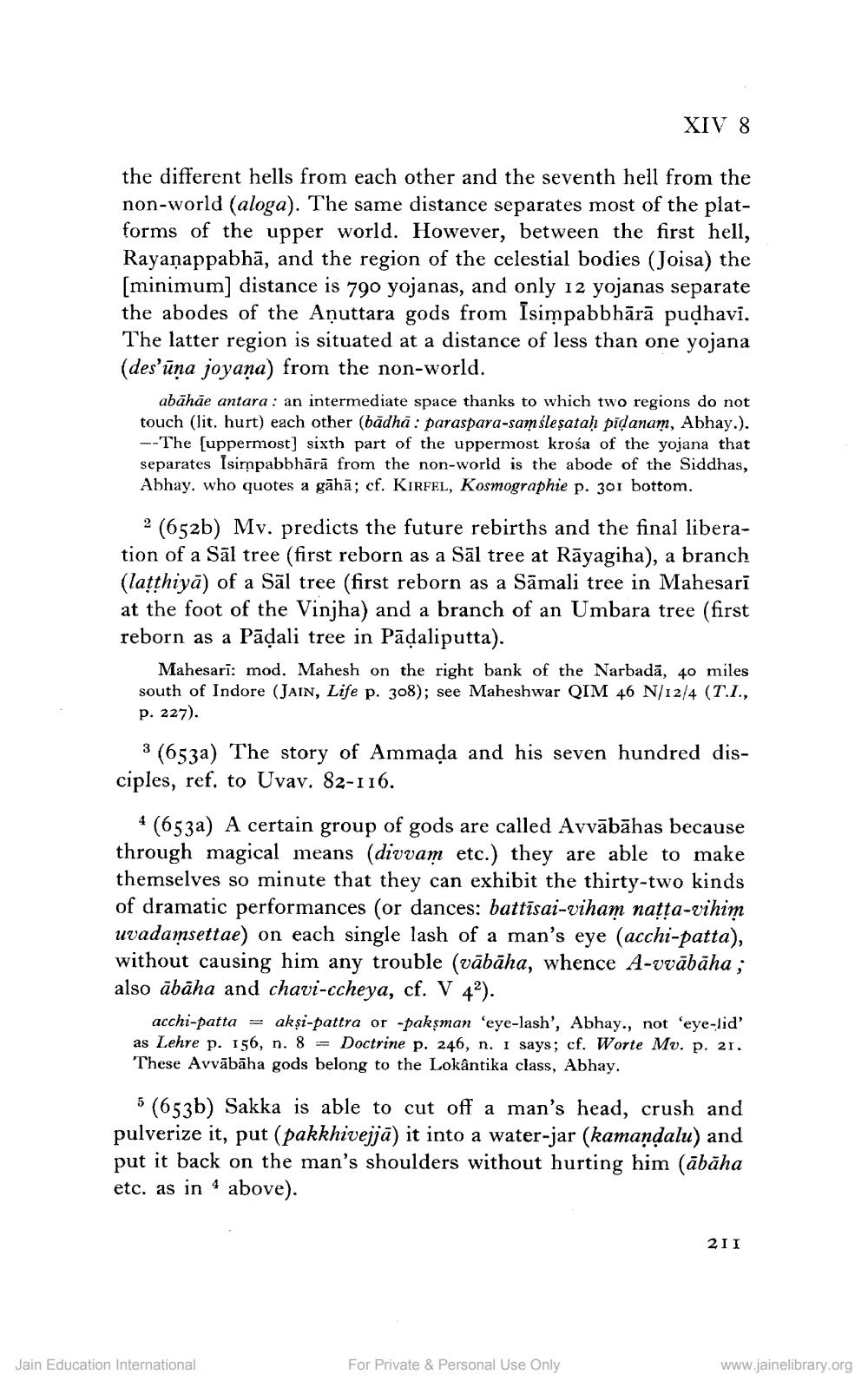________________
XIV 8
the different hells from each other and the seventh hell from the non-world (aloga). The same distance separates most of the platforms of the upper world. However, between the first hell, Rayaņappabhā, and the region of the celestial bodies (Joisa) the [minimum] distance is 790 yojanas, and only 12 yojanas separate the abodes of the Aņuttara gods from Isimpabbhārā pudhavi. The latter region is situated at a distance of less than one yojana (des’ūna joyana) from the non-world.
abāhāe antara : an intermediate space thanks to which two regions do not touch (lit. hurt) each other (bādhā: paraspara-samśleşataḥ pidanam, Abhay.). -- The (uppermost] sixth part of the uppermost krośa of the yojana that separates Isir pabbhārā from the non-world is the abode of the Siddhas, Abhay. who quotes a gāhā; cf. KIRFEL, Kosmographie p. 301 bottom.
2 (652b) Mv. predicts the future rebirths and the final liberation of a Sāl tree (first reborn as a Sāl tree at Rāyagiha), a branch (lathiyā) of a Sāl tree (first reborn as a Sāmali tree in Mahesari at the foot of the Vinjha) and a branch of an Umbara tree (first reborn as a Padali tree in Padaliputta).
Mahesari: mod. Mahesh on the right bank of the Narbadā, 40 miles south of Indore (JAIN, Life p. 308); see Maheshwar QIM 46 N/12/4 (T.I., p. 227).
3 (653a) The story of Ammaďa and his seven hundred disciples, ref, to Uvav. 82-116.
4 (653a) A certain group of gods are called Ayvābāhas because through magical means (divvam etc.) they are able to make themselves so minute that they can exhibit the thirty-two kinds of dramatic performances (or dances: battīsai-viham națța-vihim uvadamsettae) on each single lash of a man's eye (acchi-patta), without causing him any trouble (vābāha, whence A-vvābāha ; also ābāha and chavi-ccheya, cf. V 42).
acchi-patta == aksi-pattra or -paksman 'eye-lash', Abhay., not 'eye-lid' as Lehre p. 156, n. 8 = Doctrine p. 246, n. I says; cf. Worte Mv. p. 21. These Avvābāha gods belong to the Lokântika class, Abhay.
4
.
5 (653b) Sakka is able to cut off a man's head, crush and pulverize it, put (pakkhivejjā) it into a water-jar (kamandalu) and put it back on the man's shoulders without hurting him (ābāha etc. as in 4 above).
2II
Jain Education International
For Private & Personal Use Only
www.jainelibrary.org




